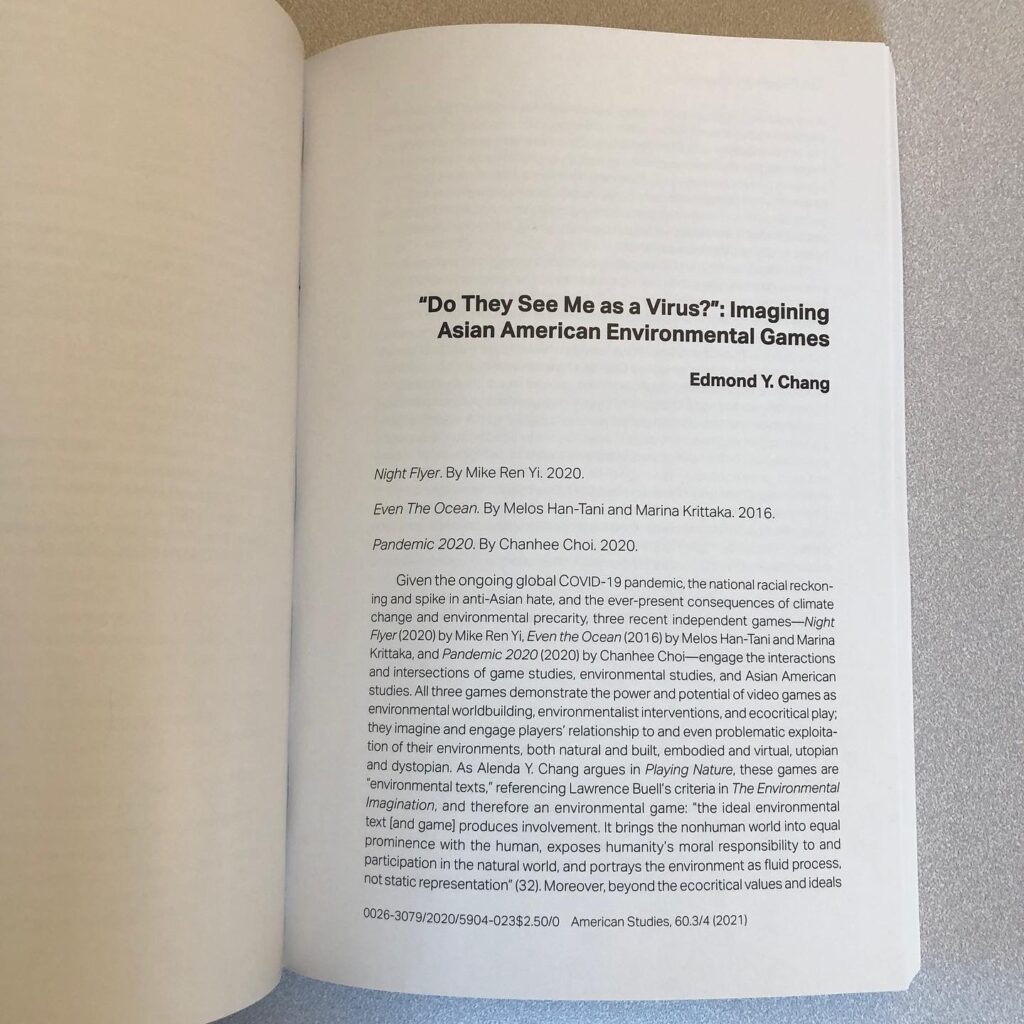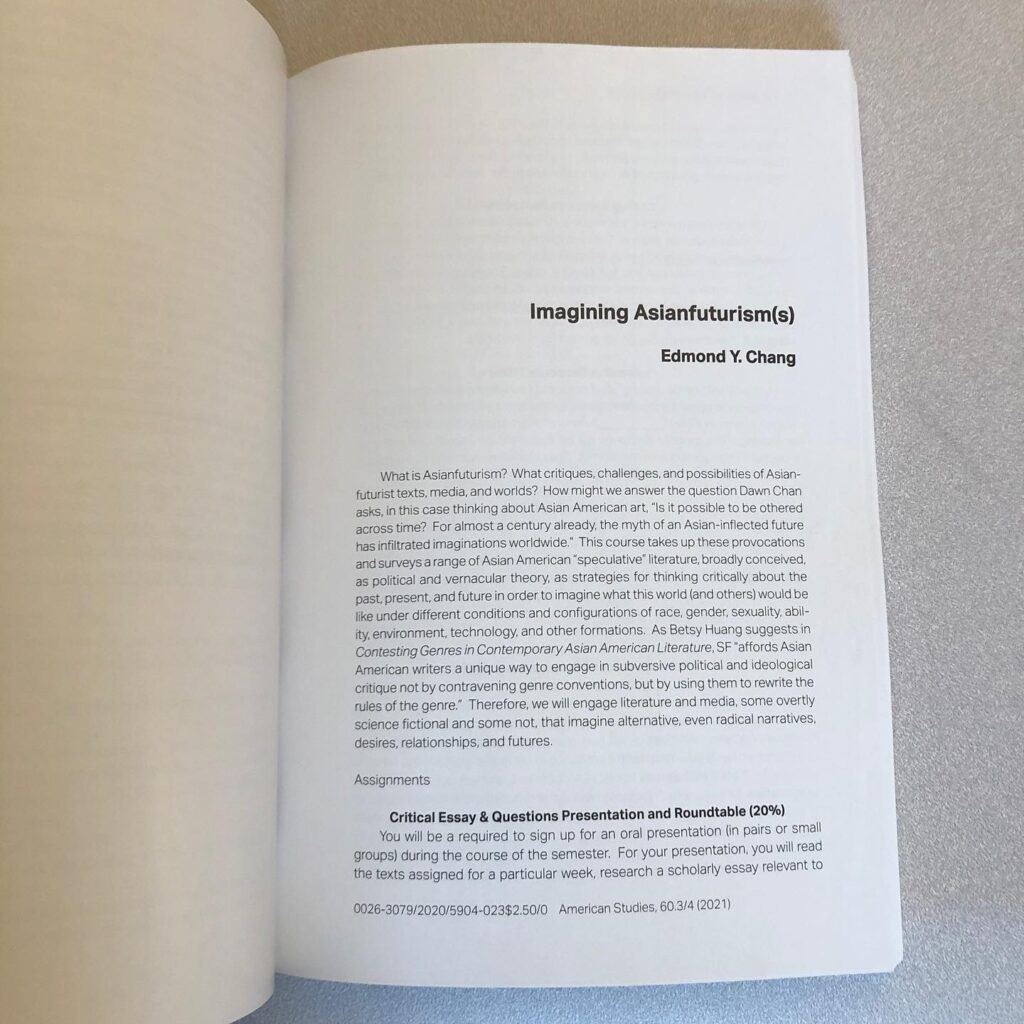
I have a new publication out in American Studies (AMSJ) as part of their double issue on “Our Shared Planet.” My essay is entited “‘Do They See Me as a Virus?’: Imagining Asian American (Environmental) Games.” Thank you to editors Hee-Jung S. Joo and Pacharee Sudhinaraset for inviting me to contribute and for their hard work in getting my essay and the issue together. The piece was originally longer and tried to imagine and theorize Asian American environmental games as a new and developing formation. Alas, the essay needed to be cut down to a “review essay.” It is still great because I got to foreground three independent games. Here’s the abstract:
This essay engages and close plays three recent independent games created by self-identified Asian American designers to answer what might an Asian Americanist intervention into video games and the environment look, feel, and play like? Night Flyer (2020) by Mike Ren Yi, Even the Ocean (2016) by Melos Han-Tani and Marina Kittaka, and Pandemic 2020 (2020) by Chanhee Choi provide an opportunity to contingently conceive of a growing body of Asian American games to 1) highlight Asian American contributions to environmental studies and game studies, 2) make legible Asian American games as part of environmental literature and media writ large, and 3) creatively articulate an Asianfuturist imagining of the environment that points to critical utopian possibilities. These games and game makers put into practice a “games of color” approach, a centering of non-hegemonic identities and experiences to imagine alternative circuits and possibilities of self, world, and play

Published alongside the essay is a sample syllabus I developed called “Imagining Asianfuturism(s).” Maybe one day I will get a chance to teach it! Here is the imagined course description:
What is Asianfuturism? What critiques, challenges, and possibilities of Asianfuturist texts, media, and worlds? How might we answer the question Dawn Chan asks, in this case thinking about Asian American art, “Is it possible to be othered across time? For almost a century already, the myth of an Asian-inflected future has infiltrated imaginations worldwide.” This course takes up these provocations and surveys a range of Asian American “speculative” literature, broadly conceived, as political and vernacular theory, as strategies for thinking critically about the past, present, and future in order to imagine what this world (and others) would be like under different conditions and configurations of race, gender, sexuality, ability, environment, technology, and other formations. As Betsy Huang suggests in Contesting Genres in Contemporary Asian American Literature, SF “affords Asian American writers a unique way to engage in subversive political and ideological critique not by contravening genre conventions, but by using them to rewrite the rules of the genre.” Therefore, we will engage literature and media, some overtly science fictional and some not, that imagine alternative, even radical narratives, desires, relationships, and futures.